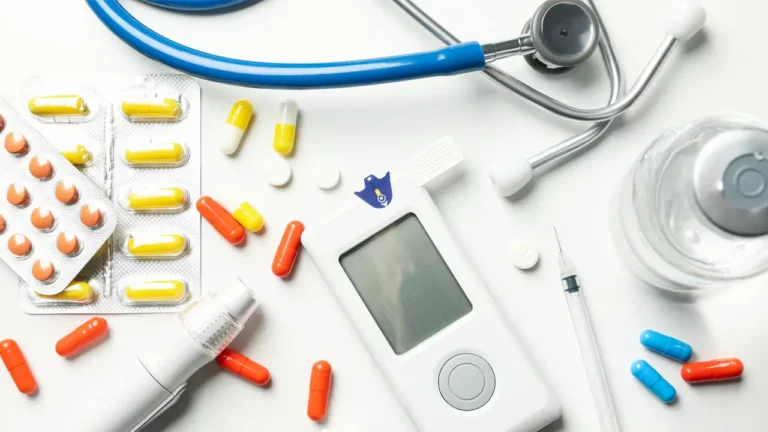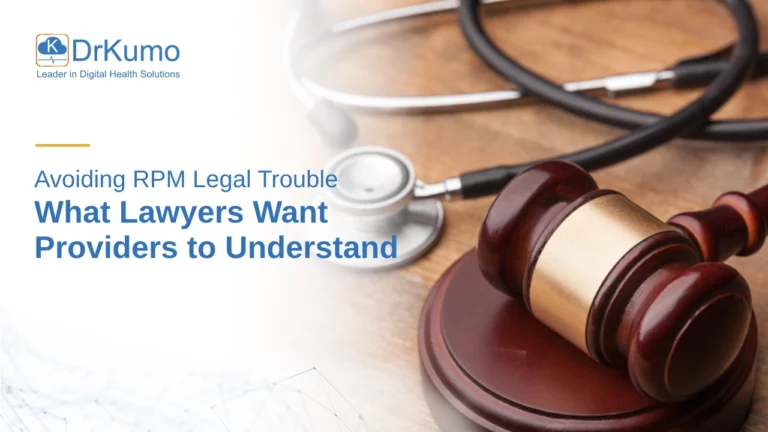Effective patient education plays a crucial role in improving healthcare outcomes. According to a study published in the National Library of Medicine, empowering patients with knowledge and skills to manage their health conditions not only leads to better patient outcomes but also reduces healthcare costs and improves patient satisfaction.
In this article, we will explore the importance of patient education in healthcare outcomes and strategies for effective patient education. We will also examine how remote patient monitoring technology can enhance patient education and contribute to improved health outcomes.
The Role of Health Care Professionals in Patient Education
Healthcare professionals play a crucial role in patient education. Physicians, nurses, and other healthcare providers are responsible for providing patients with the knowledge and skills necessary to manage their health effectively. The aim of patient education is to improve health outcomes, promote patient engagement, and ensure that patients have a clear understanding of their medical conditions and treatment plans.
Healthcare professionals must educate patients on various topics, including disease prevention, medication management, lifestyle changes, and self-care. They must communicate health information in a clear and understandable manner, taking into consideration the patient’s health literacy and cultural background.
In addition to educating patients, healthcare professionals must also ensure that patients understand and adhere to their treatment plans. They must monitor patients’ progress, provide feedback, and adjust as necessary. Effective patient education requires a collaborative approach, with patients and healthcare professionals working together to achieve optimal health outcomes.
Healthcare professionals must stay up to date with the latest research and best practices in patient education. They must also be knowledgeable about the different types of educational resources available, such as brochures, videos, and online materials. By incorporating patient education into their practice, healthcare professionals can empower patients to take an active role in their health and achieve better health outcomes.
Strategies for Effective Patient Education
Effective patient education requires a multifaceted approach that takes into consideration the patient’s individual needs, preferences, and learning style. Here are some strategies that healthcare professionals can use to enhance patient education:
- Assess the Patient’s Needs: Healthcare professionals should assess the patient’s health literacy level, cultural background, and preferences for learning. This information can help tailor patient education materials to meet the patient’s specific needs.
- Use Clear and Simple Language: Healthcare professionals should use plain language and avoid medical jargon when communicating health information to patients. They should also use visual aids and examples to help patients understand complex medical concepts.
- Reinforce Key Messages: Repetition and reinforcement of key messages can improve patient retention of health information. Healthcare professionals can use multiple methods to reinforce key messages, such as follow-up appointments, handouts, or electronic reminders.
- Provide Accessible Educational Materials: Educational materials should be easy to read and understand, regardless of the patient’s health literacy level. Materials should also be available in multiple languages and formats, such as audio, video, or interactive online resources.
- Encourage Active Patient Participation: Patients should be encouraged to ask questions, provide feedback, and participate in their care. Healthcare professionals can use interactive methods, such as role-playing, to encourage active patient participation.
- Collaborate with Other Healthcare Professionals: Patient education is a collaborative effort, and healthcare professionals should work together to ensure that patients receive comprehensive and coordinated care. This can include referrals to specialists, social workers, or community resources.
By incorporating these strategies into patient education, healthcare professionals can improve patient engagement, increase patient knowledge and self-efficacy, and ultimately achieve better health outcomes.
COVID-19 and Patient Education
The COVID-19 pandemic has highlighted the importance of patient education in promoting public health and preventing the spread of infectious diseases. Here are some ways in which patient education has been crucial during the COVID-19 pandemic:
- Prevention Measures: Patient education has been essential in promoting COVID-19 prevention measures, such as hand washing, wearing masks, and social distancing. Healthcare professionals have used a variety of methods to educate patients on these measures, such as posters, brochures, and videos.
- Vaccine Education: Patient education has also played a critical role in promoting COVID-19 vaccination. Healthcare professionals have used a range of strategies to address vaccine hesitancy and provide accurate information about the safety and efficacy of COVID-19 vaccines.
- Telehealth and Virtual Education: The pandemic has also accelerated the use of telehealth and virtual patient education, allowing healthcare professionals to reach patients who may be unable to attend in-person appointments. This has enabled patients to receive timely and accurate information about COVID-19, as well as other health conditions.
- Mental Health Support: The pandemic has also had a significant impact on mental health, and patient education has been essential in providing support and resources for patients. Healthcare professionals have used a range of methods, such as online support groups and teletherapy, to provide mental health education and support.
Impact of Patient Education on Health Outcomes
Effective patient education has been shown to have a positive impact on health outcomes across a range of conditions. Here are some ways in which patient education can improve health outcomes:
- Chronic Disease Management: Patient education has been shown to improve outcomes in chronic diseases, such as diabetes, heart disease, and heart failure. By providing patients with the knowledge and skills to manage their conditions, healthcare professionals can help patients to achieve better health outcomes and reduce the risk of complications.
- Adherence to Treatment Plans: Patient education can also improve adherence to treatment plans, such as medication regimens and lifestyle modifications. By ensuring that patients understand the importance of their treatment plan and how to follow it, healthcare professionals can help patients to achieve better health outcomes.
- Behavior Change: Patient education can also be effective in promoting behavior change, such as adopting a healthier diet or quitting smoking. By providing patients with the knowledge and skills to make positive changes, healthcare professionals can help patients to achieve better health outcomes and reduce the risk of chronic diseases.
- Patient Safety: Patient education is also essential in promoting patient safety, such as preventing medication errors or avoiding falls in older adults. By educating patients about potential risks and how to avoid them, healthcare professionals can help to prevent adverse events and improve patient outcomes.
DrKumo Remote Patient Monitoring for Improving Patient Education
Remote Patient Monitoring (RPM) is a critical component of healthcare delivery, enabling patients to manage their health conditions outside of the traditional hospital setting. By providing patients with continuous, real-time monitoring and support, RPM can improve patient outcomes and reduce healthcare costs. Moreover, RPM can play a significant role in patient education, empowering patients to take an active role in their healthcare management.
DrKumo is a leading technology company that offers a highly scalable, continuous, real-time RPM solution for chronic disease management, acute care, post-operation, and hospital care at home. DrKumo state-of-the-art, HIPAA-compliant, mobile-enabled, continuous real-time monitoring, and AI/ML engine is user-friendly and easy to use.
DrKumo RPM technology enables patients to manage their health conditions in the comfort of their homes, reducing the need for frequent hospital visits. With real-time monitoring and intelligence, healthcare providers can intervene promptly and make timely decisions to improve patient outcomes.
DrKumo innovative and technology-driven culture makes it a leading provider of effective solutions for both patients and healthcare providers. With DrKumo’s RPM technology, patients can receive continuous education and support to manage their health conditions better, leading to improved outcomes and better quality of life.
Takeaways
Patient education plays a critical role in improving healthcare outcomes. By providing patients with the knowledge and skills they need to manage their health conditions and make informed decisions, healthcare professionals can empower patients to take an active role in their health and well-being. Effective patient education can help patients to achieve better health outcomes, promote behavior change, improve adherence to treatment plans, and promote patient safety.
Enhance your patients’ education and improve their health outcomes by incorporating remote patient monitoring technology into your practice. Contact DrKumo now.








